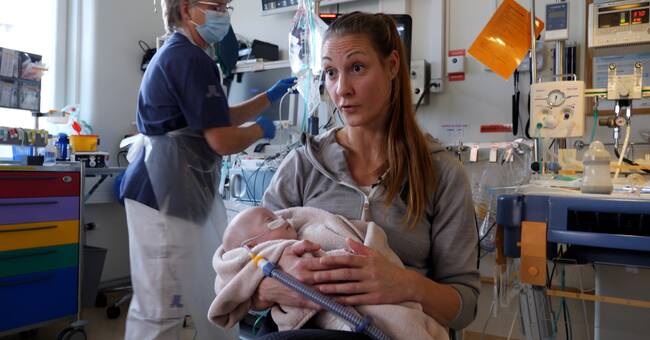Already this summer, several hospitals warned of unusually early outbreaks of RS virus in young children.
In normal cases, the number of cases of infection usually increases in November to culminate in February.
Following indications from the health service, the Swedish Public Health Agency began monitoring the virus earlier this year and the number of registered cases so far shows an earlier and more intensive season.
Linda Cadario has visited the pediatric emergency room at Södersjukhuset in Stockholm with her daughter Amelia.
- I got to learn about the RS virus when she was born, but I probably did not think it would happen to my child, she says.
Amelia gets help with oxygenation via a nasal mask and mother Linda feels calm despite the situation.
- We are in safe hands here, soon we will go up to another department and get help, she says.
The smallest are affected
It is mainly younger children up to six months of age who are at risk of becoming seriously ill.
- For older children and adults, it is most noticeable as a real cold, or a small cold, says Tobias Alfvén, specialist doctor at the pediatric emergency room Södersjukhuset.
When to seek care?
- If the children are very generally affected.
For example, you get a fever, eat poorly, urinate less than usual, have affected your breathing patterns and are very tired, you should definitely come in, says Anna Löwbeer Wester, specialist nurse in the pediatric emergency department at Södersjukhuset.

